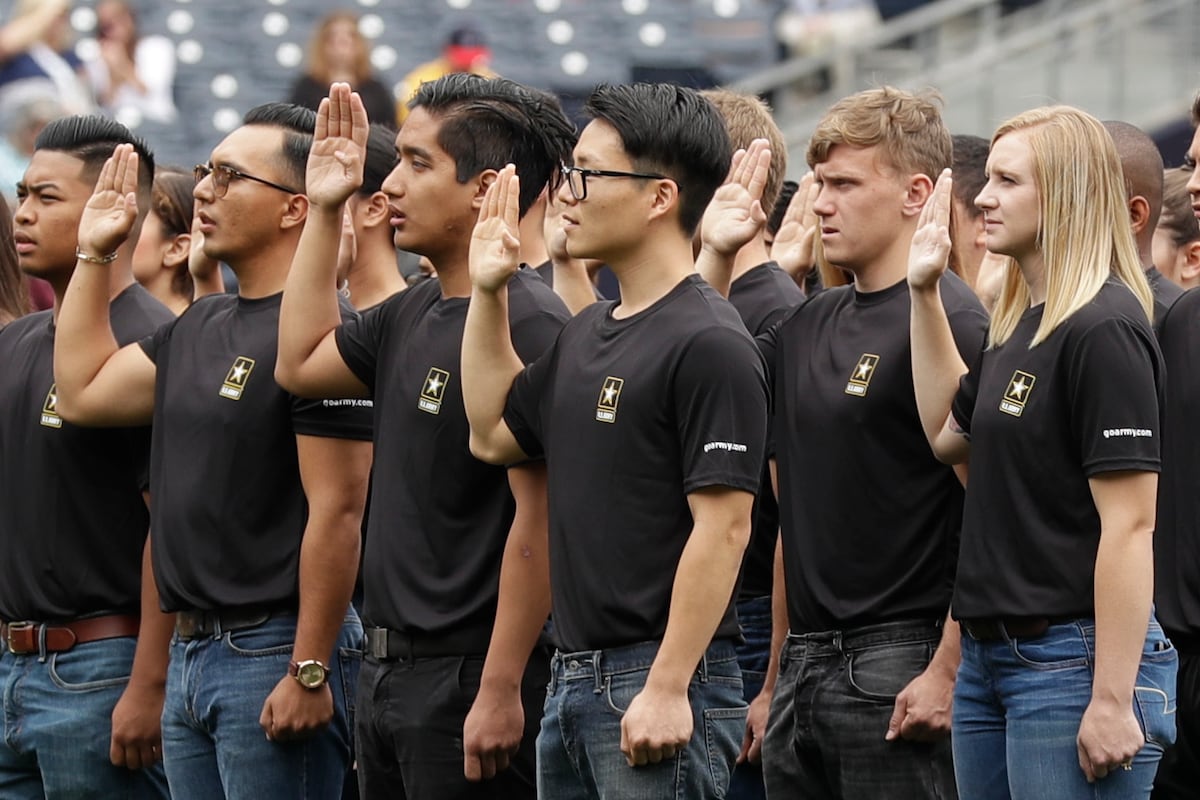World
Army Tightens Eligibility for Future Soldier Preparatory Course

The U.S. Army is revising eligibility criteria for the Future Soldier Preparatory Course (FSCP), a key program for enhancing recruitment efforts. Prospective recruits will now have the option to focus on either improving academic test scores or physical fitness, but not both. This change, confirmed by an Army spokesman on Tuesday, comes amid ongoing challenges related to a government shutdown, which has delayed the timeline for implementing these new rules.
The FSCP is a program that spans up to 90 days and is designed to assist candidates who do not meet the Army’s enlistment standards. By participating in the course, recruits can elevate their fitness levels and enhance their test scores before entering basic training. The initiative aims to expand the recruiting pool while maintaining rigorous standards, particularly as the Army faces difficulties in attracting young individuals who qualify for service.
Originally launched as a pilot initiative in 2022 at Fort Jackson, South Carolina, the FSCP has proven effective in addressing recruitment shortfalls. Under the initial framework, recruits could choose to focus solely on either fitness or academics. In 2023, the program expanded, allowing candidates to work on both areas and extending its availability to additional military installations. By September 2024, nearly 25,000 recruits had completed the program, successfully transitioning into soldiers.
Army officials have heralded the FSCP as instrumental in achieving recruitment goals. For the fiscal year 2025, the Army reported reaching its target of 61,000 new soldiers within just eight months, as detailed in a June press release. The improved recruiting landscape raises questions about how the revised eligibility criteria will affect future enlistment numbers.
Katherine Kuzminski, director of studies at the Center for a New American Security, commented on the evolving recruitment environment, noting, “It costs a lot of money to drive interest in military service.” She emphasized that the FSCP plays a crucial role in helping interested individuals meet the necessary standards, a challenging task given the complexities of changing perceptions about military service.
With recruitment trends showing improvement, Kuzminski indicated that the Army is now in a position to be more selective in its criteria. “The Army can afford to be more selective and say you can only have one deficiency at this point,” she stated, highlighting the strategic shift in the Army’s recruitment approach.
The adjustments to the FSCP reflect the Army’s ongoing efforts to adapt to changing demographics and recruitment challenges while ensuring the integrity of its enlistment standards. As the military continues to navigate this landscape, the impact of these changes will be closely monitored in the coming months.
-

 Science4 weeks ago
Science4 weeks agoALMA Discovers Companion Orbiting Giant Red Star π 1 Gruis
-

 Politics2 months ago
Politics2 months agoSEVENTEEN’s Mingyu Faces Backlash Over Alcohol Incident at Concert
-

 Top Stories2 months ago
Top Stories2 months agoNew ‘Star Trek: Voyager’ Game Demo Released, Players Test Limits
-

 World2 months ago
World2 months agoGlobal Air Forces Ranked by Annual Defense Budgets in 2025
-

 World2 months ago
World2 months agoMass Production of F-35 Fighter Jet Drives Down Costs
-

 World2 months ago
World2 months agoElectrification Challenges Demand Advanced Multiphysics Modeling
-

 Business2 months ago
Business2 months agoGold Investment Surge: Top Mutual Funds and ETF Alternatives
-

 Science2 months ago
Science2 months agoTime Crystals Revolutionize Quantum Computing Potential
-

 Top Stories2 months ago
Top Stories2 months agoDirecTV to Launch AI-Driven Ads with User Likenesses in 2026
-

 Entertainment2 months ago
Entertainment2 months agoFreeport Art Gallery Transforms Waste into Creative Masterpieces
-

 Business2 months ago
Business2 months agoUS Government Denies Coal Lease Bid, Impacting Industry Revival Efforts
-

 Health2 months ago
Health2 months agoGavin Newsom Critiques Trump’s Health and National Guard Plans









